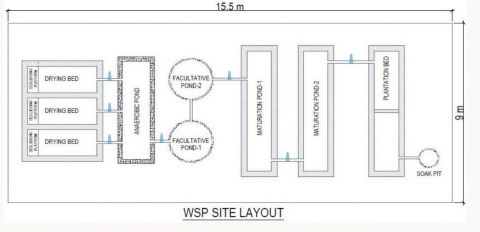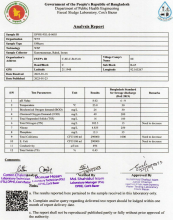Waste Stabilization pond


Description of the emergency context
Description of the emergency context Currently, there are 929,606 Rohingya refugees residing in 33 congested camps that have been officially designated by the Government of Bangladesh. This population surge occurred as a result of the extreme violence outbreak in Myanmar's Rakhine State on August 25, 2017, which led to an estimated 687,000 Rohingya refugees crossing the border into Cox's Bazar, Bangladesh. The Rohingya refugees have repeatedly sought refuge in Bangladesh due to ongoing persecution. Previous significant influxes occurred following acts of violence in Rakhine State in 1978, 1992, 2012, and once again in 2016. However, the largest and most rapid refugee influx from Myanmar into Bangladesh began in August 2017. Operating within highly congested settings, such as the Rohingya camps, WASH actors face numerous challenges in implementing effective faecal sludge treatment processes that can efficiently remove pathogens. These challenges primarily stem from space limitations, which impose constraints on the inclusion of appropriate, safe, and sustainable processes for treatment.



Project Details


Pathogen reduction
Solid/liquid separation
TSS and TDS reduction

Engine
Water

Anaerobic Lagoon
Gravel filter
Polishing pond
Screen
Unplanted drying beds
Waste Stabilisation Ponds



Health facilities
Public toilets
Unlined pit latrines

Effluent
Sludge

Design and Engineering Specialist
FSM specialist for construction
FSM specialist for design
FSM specialist for operation and maintenance
Local contractor for construction
Local NGO for operation and maintenance
Still have questions?
You could not find the information you were looking for? Please contact our helpdesk team of experts for direct and individual support.

